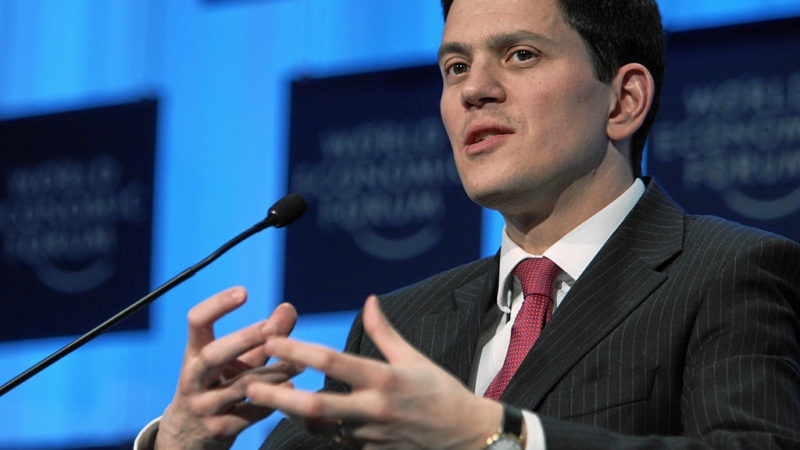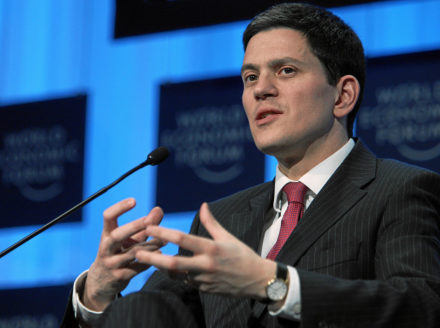

I’m back in Britain for the annual South Shields lecture, where Bond director Sam Mendes this year did a star turn for 630 people at Harton Technology College on Saturday night. I’m taking the opportunity to campaign for Britain to remain in the EU. This is the biggest decision – outside general elections – that our country will take for a generation, so I am very pleased the Labour leadership are supporting an ‘In’ vote, and that Alan Johnson is leading the Labour In campaign with verve and commitment.
I spoke yesterday morning to an enthusiastic ‘In’ meeting in Sunderland. With the local elections now concluded, we have six weeks to set out the overwhelming reasons of national interest – many of which cross left/right boundaries – for the UK to remain in the EU. An obvious example would be the incentives for inward investment and global trade that come from Britain’s membership of the single market. Or the UK’s standing and influence in the world, which I covered in my speech last month.
This morning I spoke alongside the Prime Minister, arguing there is a centre-left as well as centre-right case for ‘In’, both of which must be heard. This applies on foreign policy questions, which were the focus of today’s event, but also across a wider canvass. At a time when the very foundations and purpose of social democratic, centre-left politics in an era of globalization are under question, it is vital to explain and argue for the specific reasons for those of us on the left to be in favour of British membership of the EU, and how they contribute to a credible and radical vision of the future of the centre-left.
So we need to make a specific Labour case as well as a national interest case. And the good news is we can make a united as well as a determined argument.
I have long thought that the Tory tragedy has been to have become obsessed with Europe. It is hard to imagine a Tory selection meeting not including a question on Europe; and it is impossible to avoid the conclusion that there has been a flight to the extremes in the bidding war for votes.
The Labour challenge is different. Far from being obsessed by Europe, we have taken it for granted – in part because we are so united. I was certainly not asked my views on Europe at my selection meeting in 2001 and Europe did not really feature in the 2010 or 2015 leadership campaigns. So we need to turn our unity into an advantage – a campaigning opportunity as well as an opportunity to achieve something vital for our country.
The future of Britain in Europe depends on the left speaking out for how it elevates and advances our values. This is not least because Europe shows how government can be a force for good that tackles, not contributes, to modern challenges – from consumer protection to the environment to cracking down on tax evasion.
The progressive case for Britain in Europe is also a hopeful one. Of course we should warn of the dangers for jobs, rights and security outside the EU’s single market. They are real. In the North East, where I was over the weekend, last week’s warnings by the Japanese prime minister are stark and clear.
A Leave vote would be disastrous for the livelihoods and opportunities of working people in every community of our country. But there is also a case that greater fairness, liberty and sustainability depend in part on being in the EU. We cannot defend the European cause by saying that the EU is a danger but we have sufficient opt outs to mitigate the danger – what Jim Murphy used to call the curse of the double negative. We need to be able to explain why the EU is part of the answer to the problems of modern society and economy.
The purpose of left of centre politics is to promote a more equal and sustainable society, nationally and internationally. We aspire to a society that spreads wealth, opportunity and power; a society that reduces risk, exploitation and fear; a society that strengthens community and common purpose. The progressive case for Europe has to be that membership of the EU strengthens these forces.
There are some very clear examples that are obvious:
The EU underpins regulation of the labour market, limiting ‘social dumping’ (undercutting of wages and conditions) and extending the rights of employees (eg four weeks’ annual holiday) and their representatives.
The EU, as the world’s largest single market, offers the chances to protect citizens from the risk of market excess, including in the financial sector.
The EU has weight in international negotiations, from trade to climate, that would be denied to individual members states and whose progressive goals include tackling climate change and tax evasion.
The EU can use its collective weight in international aid (where it is the second biggest donor after the US) to tackle the worst excesses of misery around the world.
The EU promotes stability and security by acting as one voice in respect of threats from nations (eg Russia) and individuals (eg. terrorists).
And the positive argument extends beyond June 23rd – to the improvements we want to see in the EU, as it rises to the challenges of global markets, fragmented politics, and heightened tensions.
This argument is a far cry from the nebulous myths of the far right: the EU in fact has fewer civil servants than Kent County Council, the EU underpins markets but does not write the majority of national laws.
The Europe debate has sometimes seemed like a debate within the Tory party. We need to take it wider than debate, making the cross party case and the distinctive progressive case for a strong Britain in a strong Europe.
I look forward to making this argument alongside friends from Labour In in the coming weeks. The progressive case for Europe is one we cannot take for granted. We now have a great opportunity to make it.
David Miliband is former Labour Foreign Secretary




More from LabourList
Government abandons plans to delay 30 local elections in England
‘The cost of living crisis is still Britain’s defining political challenge’
‘Nurses are finally getting the recognition they deserve’